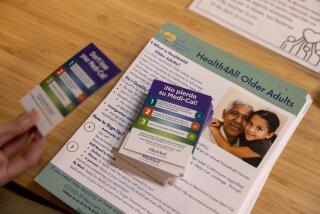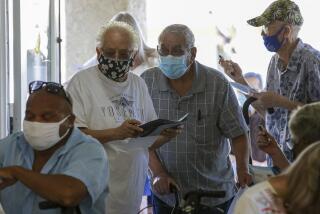Press the Medicare Crackdown
- Share via
The good news is that improper payments by Medicare to health care providers have been cut in just two years by a whopping 46%. The not so good news is that errors and fraud still added $12.6 billion to Medicare’s costs last year, more than seven cents out of every dollar spent on the system’s nearly 40 million elderly and disabled beneficiaries. That still-high rate of overpayment defines the task that remains to be completed.
Congress waited until 1993 to get serious about cracking down on Medicare waste, granting the government new powers and more money to go after overbilling. The proportion of Medicare bills audited has risen from 5% to 14% since 1993. The closer scrutiny, says June Gibbs Brown, inspector general of the Department of Health and Human Services, means that “the vast majority of providers are being more careful in their billing.” Expanded prosecution of fraud cases has helped as well.
To estimate overpayments, auditors looked at a sampling of bills submitted by hospitals, doctors, nursing facilities, laboratories and the like to see if the service that was billed for was provided, if it was justified and if the correct price was billed. More than 900 out of 5,540 claims examined were questioned. Lack of documentation for claims, “lack of medical necessity” for procedures and “incorrect coding” to identify treatments were the chief problems. A detailed review by auditors produced a national fraud and waste rate of 7% of total spending.
Over the last decade Medicare’s costs have risen by 10% a year. In a little more than a decade the first of 76 million baby boomers will enroll in the system. Medicare is unavoidably going to cost more. But by continuing to aggressively go after error and fraud, tens of billions of dollars can be saved.
More to Read
Sign up for Essential California
The most important California stories and recommendations in your inbox every morning.
You may occasionally receive promotional content from the Los Angeles Times.













